Healing the nation
Género : Documental
Tiempo de ejecución : 0M
Director : Jack Major, Ernest W. Matton
Sinopsis
Healing the Nation follows community members of the Toronto-based Aboriginal Healing Program as they rediscover their culture to heal from unresolved trauma. This empowering documentary dares us to think beyond mainstream medicine and embrace Indigenous ways for overcoming mental health and addiction issues.

Pittsburgh, Pennsylvania, 1991. Charlie, estudiante de primer año en la escuela secundaria, es un marginado, alguien invisible que observa la vida desde sus márgenes, hasta que dos estudiantes de último año, Sam y su hermanastro Patrick, se convierten en sus mentores, ayudándole a descubrir las alegrías de la amistad, la música y el amor.
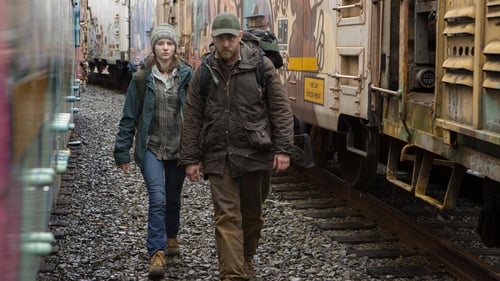
Un padre y su hija de 13 años viven una vida tranquila y feliz aislados en un enorme parque nacional de Portland, Oregon, hasta que un pequeño error complica sus vidas para siempre al ser detenidos por la policía.

Los muertos están volviendo a la vida en la reserva natural de Mi'gMaq de la comunidad de Red Crow. Los únicos que parecen ser inmunes al extraño virus que se está propagando son los indígenas que habitan la zona.

Este documental se centra en la lucha de las minorías de Nueva Escocia contra funcionarios de la Administración por los efectos letales de los residuos industriales.
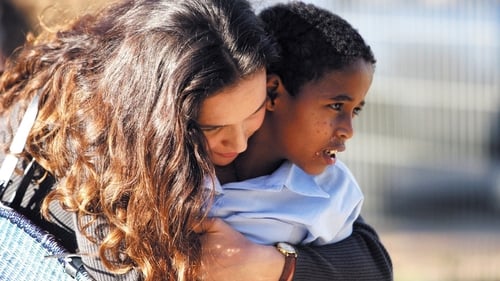
En 1984, miles de africanos procedentes de 26 países afectados por el hambre terminan en campamentos en Sudán. En una iniciativa de Israel y los Estados Unidos, se realiza una misión para llevar a miles de Judios de Etiopía a Israel. Una madre cristiana obliga a su hijo de nueve años a declararse un Judio para salvarle de la hambruna y la muerte. El niño llega a la Tierra Santa, dice que es huérfano, y es adoptado por una familia francesa sefardí de Tel Aviv, aunque crece con el temor de que se descubra su doble secreto: ni es Judio ni es huérfano, sólo es negro. Descubrirá el amor, la cultura occidental, el judaísmo, pero también el racismo y la guerra en los territorios ocupados.
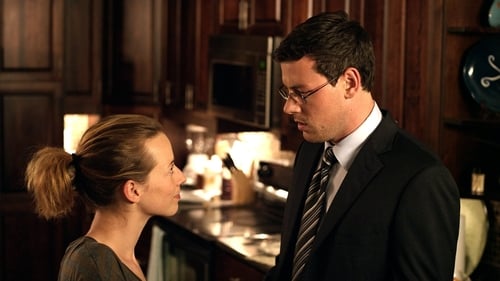
An ensemble film about four everyday people: a store manager, a security guard, a fire fighter and a clerk who struggle in the aftermath of trauma.

Una terapeuta pierde el control de la realidad cuando un niño de diez años afirma que puede controlar su futuro.
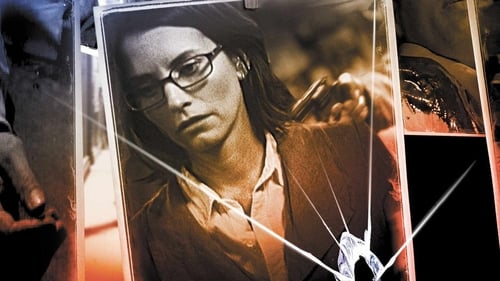
Una noche, tras una cena fuera, Sophie Jacobs (Courteney Cox) y su novio Hugh (James Le Gros) se paran en una tienda a comprar algo. Mientras Sophie espera en el coche, Hugh es asesinado en un violento robo. Destrozada, Sophie intenta seguir con su vida, enseñando fotografía en una escuela, yendo a comer con su madre (Anne Archer) y visitando a su psicóloga (Nora Dunn). Todo cambia un día en que Sophie cree ver en un proyector su propia imagen esperando en el coche.. el día del asesinato de Hugh.
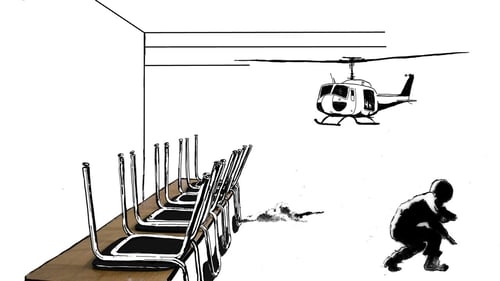
When Bill Babbitt realizes his brother Manny has committed a crime he agonizes over his decision to call the police.

For ancient Mayans, cocoa was as good as gold. For subsistence farmer Eladio Pop, his cocoa crops are the only riches he has to support his wife and 15 children. As he wields his machete with ease, slicing a path to his cocoa trees, the small jungle plot he cultivates in southern Belize remains pristine and wild. His dreams for his children to inherit the land and the traditions of their Mayan ancestors present a familiar challenge. The kids feel their father's philosophies don't fit into a global economy, so they're charting their own course. Rohan Fernando's direction tenderly displays a generational shift, causalities of progress in modern times and a man valiantly protecting an endangered culture. Breathtaking vistas of lush rainforests contrast with the urban dystopia that pulled Pops children away from him. Will one child return to carry on a waning way of life

Un antiguo prisionero de la Guerra Civil Española, John McKittrick, llega a Nueva York con la intención de investigar la muerte de su amigo Louie Lepetino, pues sospecha que no ha sido un suicidio.

CREE CODE TALKER reveals the role of Canadian Cree code talker Charles 'Checker' Tomkins during the Second World War. Digging deep into the US archives it depicts the true story of Charles' involvement with the US Air Force and the development of the code talkers communication system, which was used to transmit crucial military communications, using the Cree language as a vital secret weapon in combat.

The Blackfoot bareback horse-racing tradition returns in the astonishingly dangerous Indian Relay. Siksika horseman Allison Red Crow struggles with secondhand horses and a new jockey on his way to challenging the best riders in the Blackfoot Confederacy.
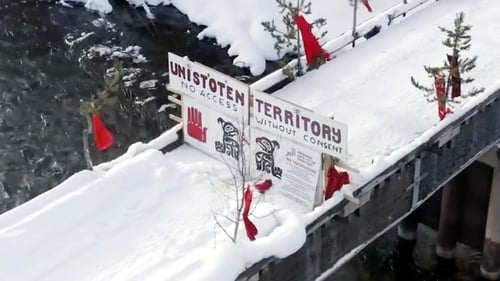
In this era of “reconciliation”, Indigenous land is still being taken at gunpoint. INVASION is a new film about the Unist’ot’en Camp, Gidimt’en checkpoint and the larger Wet’suwet’en Nation standing up to the Canadian government and corporations who continue colonial violence against Indigenous people. The Unist’ot’en Camp has been a beacon of resistance for nearly 10 years. It is a healing space for Indigenous people and settlers alike, and an active example of decolonization. The violence, environmental destruction, and disregard for human rights following TC Energy (formerly TransCanada) / Coastal GasLink’s interim injunction has been devastating to bear, but this fight is far from over.

The territory of Akwesasne straddles the Canada-U.S. border. When Canadian authorities prohibited the duty-free cross-border passage of personal purchases - a right established by the Jay Treaty of 1794 - Kanien'kéhaka protesters blocked the international bridge between Ontario and New York State.

NIN E TEPUEIAN - MY CRY is a documentary tracks the journey of Innu poet, actress and activist, Natasha Kanapé Fontaine, at a pivotal time in her career as a committed artist. Santiago Bertolino's camera follows a young Innu poet over the course of a year. A voice rises, inspiration builds; another star finds its place amongst the constellation of contemporary Indigenous literature. A voice of prominent magnitude illuminates the road towards healing and renewal: Natasha Kanapé Fontaine.

This documentary digs into the stories of Indigenous women and families to reclaim their Indian Status through their fight for the elimination of sex-discrimination in the Indian Act. It highlights the impacts of the law on individuals, families and communities. Since the passing of Bill S-3 and its amendments, thousands of Indigenous people are now eligible for Indian Status.

Gil Cardinal searches for his natural family and an understanding of the circumstances that led to his becoming a foster child. An important figure in the history of Canadian Indigenous filmmaking, Gil Cardinal was born to a Métis mother but raised by a non-Indigenous foster family, and with this auto-biographical documentary he charts his efforts to find his biological mother and to understand why he was removed from her. Considered a milestone in documentary cinema, it addressed the country’s internal colonialism in a profoundly personal manner, winning a Special Jury Prize at Banff and multiple international awards.

“Those Who Come, Will Hear” proposes a unique meeting with the speakers of several indigenous and inuit languages of Quebec – all threatened with extinction. The film starts with the discovery of these unsung tongues through listening to the daily life of those who still speak them today. Buttressed by an exploration and creation of archives, the film allows us to better understand the musicality of these languages and reveals the cultural and human importance of these venerable oral traditions by nourishing a collective reflection on the consequences of their disappearance.

In this follow-up to his 2003 film, Totem: the Return of the G'psgolox Pole, filmmaker Gil Cardinal documents the events of the final journey of the G'psgolox Pole as it returns home to Kitamaat and the Haisla people, from where it went missing in 1929.














